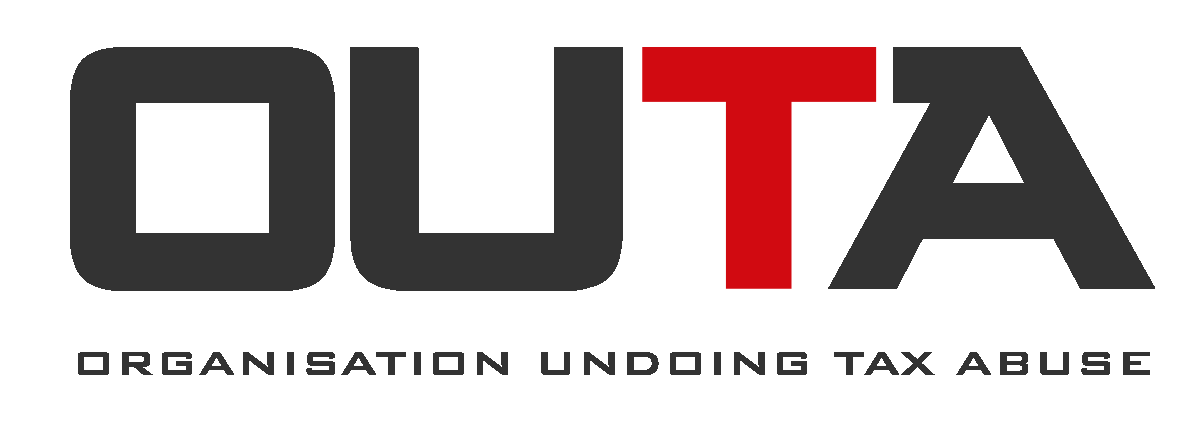.Image: Flickr/GovtZA
Electoral Amendment Bill now law, but OUTA still concerned about constitutionality
The Organisation Undoing Tax Abuse (OUTA) acknowledges the President’s assent to the Electoral Amendment Act following his own internal and legal consultations. “However, even though this bill has now been signed into law, there are still some concerns that have not been resolved,” says Rachel Fischer, OUTA’s Parliamentary Engagement and Research Manager.
OUTA's concerns include:
Proportionality that will be affected due to the three-ballot system (two ballots for National Assembly and one ballot for the relevant provincial legislature).
The fact that independent candidates can only contest 200 seats in the National Assembly (NA), and not the other 200 compensatory seats.
All the wasted votes that will occur because of the above.
Independents can win only one seat in NA once votes equal to the seat quota are met.
All excess votes are discarded.
Solutions for vacancies due to the resignation or passing of an MP are not clear.
Barriers remain for independent candidates who would like to run for Parliament. For instance, independents require signatures equal to 15% of the quota of votes required for a seat in the previous elections in order to qualify for election, which is roughly 6000 signatures.
These concerns will most likely be taken up by the Electoral Reform Consultation Panel, which must now be established within four months of the amendments being gazetted. OUTA strongly emphasises that the panel must consist of individuals who are unbiased and have expertise in this field, and it is also important that civil society organisations are represented on the panel, due to the impact this amended Act will have on citizens.
OUTA believes that this Act affects the fairness, transparency and accountability of the electoral system. The concerns OUTA has raised could have significant implications for the outcome of elections and representation in legislatures for citizens.
Fischer says it is unfortunate that the first opportunity presented by the Constitutional Court judgment in June 2020, which declared that sections of the Electoral Act were unconstitutional and overturned them, was not used to its full potential. The Concourt gave Parliament a deadline of June 2022. Unfortunately, the Minister of Home Affairs and Parliament delayed this matter, resulting in Parliament having to apply for two extended deadlines (to 10 December 2022, and then again to 28 February 2023).
One of the main reasons OUTA joined a Concourt case calling for electoral reform in July 2019 was because we wanted the law to be amended to allow individuals to stand as independent candidates in national and provincial elections, rather than the current system which allows only party candidates. “We strongly believe that independent candidates are more answerable to their voters as they face a real likelihood of being voted out if they fail to honour election promises. A system which allows for independent candidates will help mitigate the threats to accountability of the party list system,” Fischer explains.
In OUTA’s fourth submission (see here) to Parliament (on 27 January 2023), OUTA again identified problems in both the bill and the process. It is this version of the bill that was signed into law by President Ramaphosa.
“In our submission, OUTA called for a clearly constituted Electoral Reform Consultation Panel which includes civil society and with predetermined deadlines and deliverables, for greater fairness for independent candidates and for the votes of all citizens to count. We also warned that, if the bill fails to meet constitutional standards, it may be legally challenged,” says Fischer.
“The Electoral Reform Consultation Panel and the Electoral Commission have a lot of work to do to ensure constitutional, free and fair elections in 2024. OUTA will continue to monitor the developments,” Fischer says.
More information
A soundclip with comment by OUTA Parliamentary Engagement and Research Manager Rachel Fischer is here.
Read more about OUTA's previous work on electoral reform here.
The Constitutional Court judgment in the June 2020 case brought by New Nation and others can be found here.
Help us oppose corruption
OUTA is standing up against government corruption and mismanagement.
Our work is made possible though donations by our paying supporters.
Join us in working towards a better South Africa by becoming a paying OUTA supporter.
In 2023, we’re in court challenging the AARTO law, the Karpowership generation licences and SANRAL’s secrecy over toll profits.
We’re also challenging electricity prices and defending South Africa’s water resources.
We want to see South Africa’s tax revenue used for the benefit of all, not a greedy few.
Any amount welcome.
